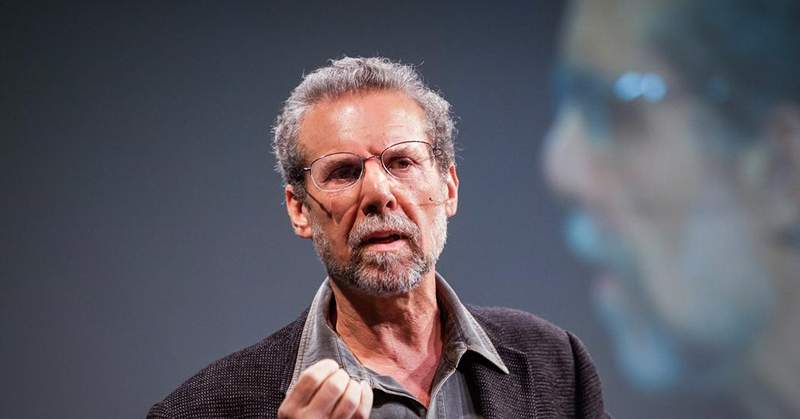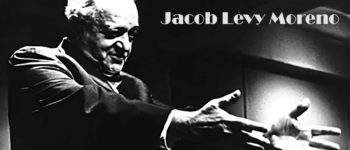Biography of Daniel Goleman (1946)

- 1177
- 147
- Lorenzo West I
Daniel Goleman is an internationally known American psychologist for his work on emotional intelligence. He was born on March 7, 1946 in Stockton, California, and is the son of university professors. In terms of emotional intelligence research, Daniel Goleman is the most recognized psychologist today. Goleman, New York writer and consultant, began writing articles for popular psychology in the early 90s and then wrote for the New York Times.
Content
Toggle- Life and work of Daniel Goleman
- Emotional intelligence
- Daniel Goleman's contributions to emotional intelligence
- IE arises from our interior
- Daniel Goleman's recognition
- Spiritual orientation and meditation
- Currently
- Your publications
- Bibliography
Life and work of Daniel Goleman
Daniel Goleman grew up in a Jewish house in Stockton, California, son of Fay Goleman, professor of Sociology at the University of Pacific and Irving Goleman, professor of humanities at Stockton College. His mother's brother was the nuclear physicist Alvin M. Weinberg. Goleman studied in India using a predoctoral scholarship by Harvard and a postdoctoral scholarship of the Social Sciences Research Council. There he was learning with the spiritual master Neem Karoli Baba and wrote his first trip -based book in India and Sri Lanka.
Then he returned as a guest professor to Harvard, where he taught during the 1970s a course on Psychology of consciousness that was popular. David McClelland, his mentor in Harvard, recommended it for a job in Psychology Today, where he was recruited by The New York Times In 1984.
Emotional Intelligence Test. Discover your strengths and weaknesses
Emotional intelligence
The ability to express and control our emotions is essential, but so is our ability to understand, interpret and respond to the emotions of others. Imagine a world that I couldn't understand when a friend felt sad or when a co -worker was angry. Emotional intelligence (IE) refers to the ability to perceive, control and evaluate emotions. But Daniel Goleman was not the first psychologist who talked about this concept. Since 1990, Peter Salovey and John D. Mayer They have been the main researchers in emotional intelligence.
Mayer and Salovey proposed the original emotional intelligence framework, that defined as:
- Identify emotions in oneself and others.
- Integrating emotions into thought processes.
- Effective processing of complex emotions.
- Regulating one's emotions and emotions.
Since then, Salovey and Mayer have developed two tests to measure what they consider emotional intelligence. However, since most of his work has been carried out academically, their names and research are not so well known.
 Biography of Jacob Levy Moreno (1889-1974)
Biography of Jacob Levy Moreno (1889-1974) Daniel Goleman's contributions to emotional intelligence
Goleman expanded the ideals of Mayer and Salovey, using five essential elements of emotional intelligence:
- Emotional self -consciousness or be aware of what you are feeling moment by moment, as well as try to understand the impact that this has on others.
- Self-regulation or try to control or redirect their emotions and learn to anticipate the consequences before acting by impulse.
- Motivation o Use of emotional factors to overcome and persevere.
- Empathy or learn to tune in and feel the emotions of others.
- Social skills or learn to effectively manage relationships and inspire others.
IE arises from our interior
According to Daniel Goleman, emotional intelligence is not something that must be sought, but something that is part of you and an integral part of your inner being. Goleman's book "Emotional Intelligence"Break several myths on the intellectual coefficient while proposing a complementary model of IE. Goleman believes that intellectual coefficients are designed to evaluate candidates based on their ability to process information, rather than their probability of success.
According to Goleman, the intellectual coefficient only contributes to 20% of our success in life. In that, we must ask ourselves what is happening with the other 80%. The remaining 80% is the result of emotional intelligence. EI includes factors such as:
- The ability to automotivate.
- Persistence.
- Impulse control.
- Regulation of empathy, humor and hope.
Goleman sees the IC and EI as skills that work separately, not opposite. What this means is A person can be brilliant at the intellectual level, but emotionally not suitable. This misalignment can, in fact, be the cause of some of the biggest problems in life that people face.
Daniel Goleman's recognition
Daniel Goleman wrote about the brain and behavior sciences. Your book Emotional Intelligence 1995 was on the list of Best Self of the New York Times for a year and a half, a best-seller In many countries, with more than 5.000.000 copies printed worldwide in 40 different languages. This book was named one of the 25 “most influential business management books” by Time Magazine. He Financial Times, he Wall Street Journal and the Accenture Insititute for Strategic Change, They have included Goleman among the most influential business thinkers of all time.
In addition to his books on emotional intelligence, he has written books on topics such as self -deception, creativity, transparency, meditation, social and emotional learning, ecoliteration and ecological crisis, and the vision of the Dalai Lama for the future for the future.
Goleman is co -founder Collaborative for Academic, Social and Emotional Learning (Society for Academic, Social and Emotional Learning) at the Center for Children's Studies at Yale University, and now at the University of Illinois in Chicago. Casel's mission focuses on carrying Programs based on emotional literacy to schools around the world.
Goleman current, promoting research associations between academics and professionals around the world to treat the role that emotional intelligence plays In professional excellence.
Spiritual orientation and meditation
Goleman practices Dzogchen meditation and is a member of the board of directors of the Mind & Life Institute. He has organized numerous conversations between the Dalai Lama and scientists from all countries To thoroughly deal with the issue of emotions, which has resulted in books Healthy Emots and Destructive emotions.
 Biography of Michael White (1948-2008)
Biography of Michael White (1948-2008) Currently
Your most recent book, Leadership: The power of emotional intelligence, It offers an updated summary of his thinking about leadership, collecting key extracts from his other works in a volume where his articles of the Harvard Business Review. Another recent Goleman book is The Brain and Emotional Intelligence: New Insights, where It gathers findings on brain research and other issues ranging from creativity and optimal performance, to the connection of the brain in leadership and how to improve emotional intelligence itself.
Currently Keep working as a writer, psychologist and scientific journalist for the New York Times. Goleman is still asked to give conferences to professional groups, business audiences and in university campuses.
Your publications
Goleman's work as a scientific journalist has been recognized with numerous awards, Among them the Washburn Award for Scientific Journalism, Lifemery Career Award of the American Psychological Association, and was appointed member of the American Association for the Advance of Science in recognition of its communicating science to the general public in the general public.
Then we leave you a compilation of your works:
- 1977: The Varieties of the Meditative Experience, Irvington Publishers.
- 1985: Vital Lies, Simple Truths: The Psychology of Self Diskion, Simon & Schuster.
- 1995: Emotional Intelligence: Why It Can Matter More than IQ, Bantam Books
- 1997: Healing Emots: Conversations with The Dalai Lama On Mindfulness, Emots, and Health, Shambhala.
- 1998: Working with Emotional Intelligence, Bantam Books.
- 2001: Primal Leadership: The Hidden Driver of Great Performance, Co-authors: Boyatzis, Richard; McKee, Annie. Harvard Business School Press.
- 2001: The Emotionally Intelligent Workplace, (Edited with Cary Cherniss) Jossey-Bass.
- 2003: destructive emotions: a Scientific Dialogue with the Dalai Lama, Bantam Books.
- 2006: Social Intelligence: The New Science of Social Relationships, Bantam Books.
- 2009: Ecological Intelligence: How Knowing The Hidden Impacts of What We Buy Can Change Eventhing, Broadway Business.
- 2011: The Brain and Emotional Intelligence: New Insights, More than Sound.
- 2011: Leadership: The Power of Emotional Intelligence - Selected Writings, More than Sound.
- 2013: Focus: The Hidden Driver of Excellence, Harper.
- 2014: The Triple Focus: A New Approach To Education, with Peter Senge, More than Sound.
- 2015: A Force for Good: The Dalai Lama's Vision for Our World, Bantam Books
What is emotional intelligence and what role does it play in our lives?
Bibliography
- Goleman, d. (nineteen ninety five). Emotional Intelligence. Kairós.
- Goleman, d. (1998). The practice of emotional intelligence. Kairós.
- Goleman, d. (2001). The strength of optimism. Kairós.
- Goleman, d. (2006). Social Intelligence. Kairós.
- Goleman, d. (2012). The brain and emotional intelligence: new discoveries. Kairós.
- Goleman, d. (2018). To the square leadership. URANO EDITIONS.

